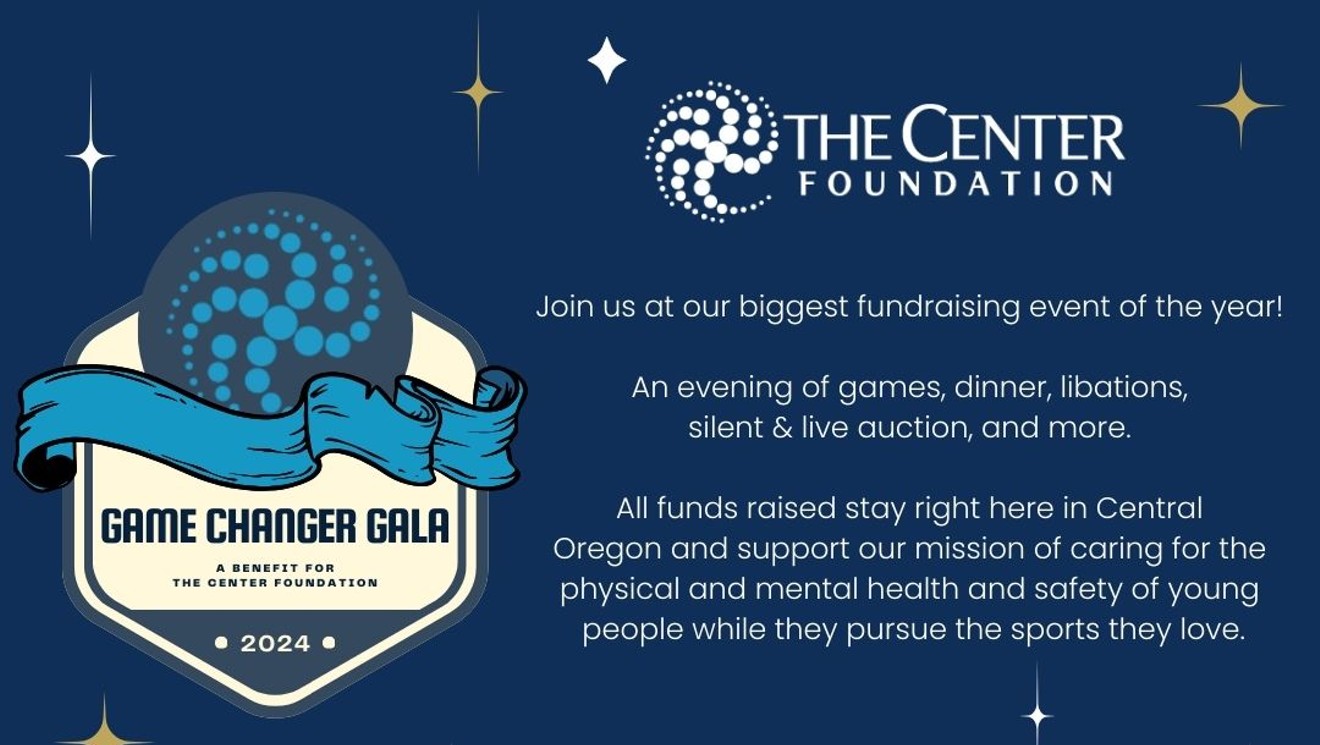A photograph of a man wearing a gray shirt holding an oversized check made out for $6.4 million appears under the headline, Breaking News, on thelotter.com. The website calls the winner—M.M. from Iraq—its biggest winner since its founding in 2002.
M.M. won the $6.4 million prize in the Oregon Megabucks game after purchasing a lottery ticket through the website, which was then bought over the counter in Oregon on behalf of the player, scanned into his lotter.com account, and kept in a safe.
In the photo, M.M. looks neither happy nor sad. That's because his face is covered by a round mask bearing thelotter.com's logo and "$6.4 million" in large print. Only his eyes are visible, but they—like his name on the ceremonial check—are blurred to keep his identity a secret. The Iraqi man requested anonymity and according to Oregon Lottery Director Jack Roberts, the winner feared for his safety back home. Though Oregon law makes lottery winners' names public, Roberts decided to comply with the man's request.
"I spent a lot of time talking to him and basically his concern was that if word gets back to Iraq that he's come into significant winnings, that he thinks him or his family members are subject to being kidnapped, held for ransom, and potentially other things could happen to them," Roberts said. "Apparently someone in their family had had that happen to them before, which is hard for us to relate to, but in that part of the world—it's apparently not that unusual."
Traveling to Oregon—The Process
The Lotter.com flew M.M. to the United States in December after notifying him in August that numbers he selected for a ticket purchased on his behalf had landed him the multimillion-dollar prize. Before he could come to Oregon and claim his prize, thelotter.com explained in a Dec. 20 release, "he needed a bit of time to get a visa to enter the United States."
Before making his way to the states, the Lotter hired attorney Sean J. Riddell to take possession of the ticket "so no one could claim that it was lost or stolen," Riddell says. Several steps were taken to hand over the ticket to the winner once he arrived—including a trip to Bend to pick it up.
"The lotter.com's agent turned the ticket over to my private investigator who brought it to me, and then I put it in a safe deposit box, and then when the winner arrived, we executed transfer of property documents and audio taped and video tapped the transfer into his possession," says Riddell. "And when I went to the lottery office with the winner, I showed them where the ticket was bought, and who bought it, and him signing it over to my agent who signed it over to me, and I signed it over to the winner."
Riddell says he can't provide further information about the process or the winner because the Lotter was very strict on what he can and cannot say. Riddell also stated that the winner would not give an interview.
Remaining Anonymous
M.M. did give an interview to thelotter.com. In it, he recalls his surprise at winning and his intent to continue playing.
"I was driving in my car, I was going to the bank," he told them, "so I get a call from the Lotter, from a great person Christine, and she told me the great news, so I was in shock!"
However, the Oregon Lottery website did not publish a press release about the Megabucks winner, and it also states that winners cannot remain anonymous, explaining that "Oregon citizens have a right to know that Lottery prizes are indeed being awarded to real persons."
But Roberts says that's not a concern in this case, and that public records law allows for exceptions.
"There's no specific provision that says lottery winners shall be made public," he explains. "The general principle of Oregon public records law is you have to disclose unless there's growing public interest or there's compelling private interest that outweighs the public's interest of disclosure, and the courts have set that at a very high bar."
Roberts said it took several days to make sure the Oregon Lottery wasn't violating any laws by paying the unconventional ticket.
"We did all the other background, so we went to the terrorism task force, we went to Interpol, we did all that stuff to make sure that there was no other connection that we could find that he was trying to hide," Roberts says, adding that the Department of Justice could challenge his decision to keep the winner anonymous if it wanted to. "Now the DOJ has looked at it, and they've told me that they believe in this case there's sufficient basis for justifying not disclosing it."
After being thoroughly vetted, M.M. agreed to take annuity payments over the next 25 years, which is $256,000 annually before taxes—according to the Lotter website.
"He was willing to trust in the system enough to take it over 25 years, which is better for the particular Megabucks ticket that he bought—that's better economic decision—but that also showed that he wasn't trying to cash in and get away with something," Roberts says.
The Loophole
It's not just the winner's country of residence, or his request for anonymity, that make M.M.'s win remarkable. Oregon law prohibits online gambling, and M.M.'s ticket was purchased through a website. The Oregon Lottery website explains that "internet wagering is a complex issue involving both state and federal law, as well as a number of regulatory, technological and security challenges."
The Lotter—which is officially based in the United Kingdom, but is registered in Belize and processes credit card payments in Cypress—is a global company, offering its services in 15 languages. The site advertises that people can purchase lottery tickets online for 49 different games in the United States, United Kingdom, Europe, South Africa, Brazil and several other countries. The Lotter also says it doesn't keep any of the prize money earned from winning tickets; instead, it charges a small fee when tickets are purchased over its website. For example, a Powerball ticket with three sets of numbers costs $15 as opposed to a $3 over-the-counter purchase at a lottery retailer.
Roberts says people outside of the country who wanted to purchase tickets in Asia have approached the Oregon Lottery, but this is the first time in the history of the Oregon Lottery that someone outside the country has won.
"We looked at the law and said we can't knowingly and consciously do that—we'd have to change our rules and change our laws," Roberts says. "And then we found out that some people weren't waiting for that, they just found a way apparently around it. I guess they are making it work."
Before the Iraq-based winner emerged, Roberts says he didn't know sites like the Lotter existed, but recently learned that New York State had a similar experience with an online winner. The Oregon Lottery took a similar approach by waiting to check out how the ticket was purchased.
"They are selling an interest in a ticket," he says. "So the ticket itself never left the state of Oregon—it was purchased by someone here in Oregon."
Roberts says federal laws restrict the interstate sales of lottery tickets because of differences in state gambling laws.
"Different states allow it and don't allow it," he explains. "And so you're just supposed to just sell in state, and you're not supposed to be doing this over the internet."
But because of the physical purchase of the lottery ticket by someone in a store, Roberts says it's similar to buying a lottery ticket for a friend.
"So we looked at it and said, technically, this doesn't appear to violate that because they're not buying a physical ticket, no one is sending a ticket [to Iraq]—they are arranging for someone else to buy a ticket on their behalf within the state," Roberts says. "It's just like if you say to a friend who is going to buy a lottery ticket, 'Hey pick one up for me'—there's no law against that."
Roberts also explained that the winner's Kurdish background could also present a problem if his name was made public in Baghdad.
"Kurds are a minority who have been subject to not only the war and the things on there but they have both Iraq, Iran, and the Turks who don't want the Kurds to establish their own homeland in the northern part of Iraq," he says. "His family—they're in business—and they are somewhat prominent people, that's why he said the name would mean something back there."
In the Future
Because this is the first time a winning ticket had been purchased through an online service, extra care was taken when the money was awarded.
"We weren't looking for a way to get out of paying. The lottery works on the basis of people believing they have a winning ticket and they are going to get paid, they're not going to get hassled, they're not going to try to get out of it," Roberts says. "We were just trying to make sure we weren't violating any other laws by paying this off."
When asked about whether the anonymity rules listed on the lottery's website would be revised after the instance of the Iraqi winner, Roberts says that it's unlikely.
"As far as changing the language on our website, I think we'll need to discuss this issue more fully with the Oregon Attorney General's office to determine if such a change is necessary or appropriate," he says. "Certainly this recent situation is based on an extremely unusual factual situation that is unlikely to recur."
























